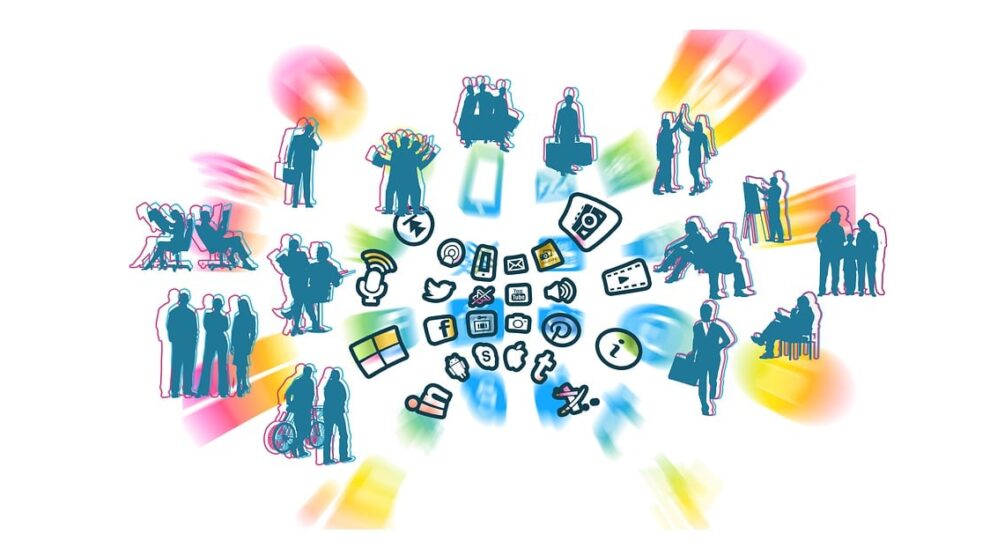Once upon a time, a sitting US president was banned from Twitter and Facebook. When Parler became the go-to haven for his supporters, Parler was taken offline for a few days. This time, it wasn’t Parler’s decision – the hosting provider decided for them.
Both Amazon’s decision and Parler’s inability to solve the issue faster were unexpected. Or embarrassing as the headline of the year (thus far) told us: Pirate Bay Founder Thinks Parler’s Inability to Stay Online Is ‘Embarrassing’. Yes, that Pirate Bay, the one that managed to stay online for years, despite blatantly breaking numerous laws. In fact, Pirate Bay is still online – not in the initial form and with much controversy surrounding it, but still.
But I digress.
This article is not about politics. No matter whom you support in the social media versus the now former president of the US, one thing is for sure: you should never put all your eggs in one basket. Especially when that basket is not yours.
For years, Donald Trump (there, I’ve said his name, just in case anyone was still in the dark about whom I’m referring to) used Twitter as a platform to voice many of his controversial opinions. The media ate everything up, whether they supported him or not. A single tweet would supply enough material for hours of talk shows, countless op-eds, late night shows, comedy shows, and more. When Twitter and Facebook pulled the plug, the former president was left without a platform and the media lost the “rocket fuel” that powered their shows and their articles – all at a very critical moment.
All the Influencers in the House Say ‘Aye’
There are thousands of influencers whose livelihood depends on one social network or another. At the first faux pas, they can end up with their account suspended or deleted permanently. Which, of course, will leave them in tears.
It happened countless times.
And this is just the tip of the iceberg. Three years ago, small(er) YouTube content creators found themselves unable to monetize their videos anymore due to a swift change in the network’s policy.
By the way, have you ever read the terms and conditions? Who has, right?
Well, it’s a lot of legalese, so I don’t blame you. But the TL;DR of it is this: no social network owes you anything, not even an explanation. If they decide to close your account or close up shop altogether, you can’t do anything about it. Sure, you can moan and cry, but that won’t change anything.
Better (read: worse) yet is that they aren’t even obligated to tell you anything in advance. If you get a 24-hour notice, you can consider you got the royal treatment. Bottom line: if your livelihood depends on any social media platform, you’re living on shifting sands.
Can This Happen to Me?
I know what you’re thinking: you’re not an influencer, nor a politician. You run a legit business in a “tame” industry, so why would they shut you down?
Because they can.
Sounds like a toddler’s answer, right? It might, but it’s the truth.
Any social network can suddenly decide to dis-approve your ads. Or stop allowing ads in your industry.
Example time: a few years ago, Facebook decided to restrict the parameters you can use to advertise certain “special categories”, as they call them. Credit opportunities, housing, political, and employment ads all fall within these categories.
As part of “the effort to help protect people on Facebook from unlawful discrimination”, you could no longer choose whom you advertise to. You could set the location where the ads would be displayed and a few other very generic parameters. That was it!
One of our social media marketing and management clients was directly affected by this. As a luxury car dealer in California, it was very important to them to be able to target people with a certain income.
Without any notice, this was no longer possible. Existing ads were automatically edited and, from what used to be a great lead generation technique, we ended up with zero inquiries. Save for inquiries from people who sent us messages to STOP targeting them because they don’t want those “ugly” cars.
Better yet, even the (now defunct) page likes campaigns strangely seemed to adhere to those rules, even though those specific ads were never about leasing or credit opportunities. If you ever tried to run an ad on Facebook, you know that there’s almost no human support, so all our appeals fell on deaf bot ears.
Thus, a platform that helped my agency’s client generate hundreds of thousands of dollars’ worth of sales and leads every month suddenly stopped generating anything other than misdirected hate. All without my client (and Facebook’s client – this is important to add!) having a say in it.
I’m not here to debate the ethical implications of this. Is this really helping to fight discrimination? Is it fair to businesses? I’ll leave that to philosophers.
What I’m here to say is that Facebook (just like any other social media network) doesn’t owe you a thing. Whether you’re a paying customer or just an individual user, you don’t have a say in how the platform works.
And rightfully so.
Despite all the statements about “making the world a better place”, social media executives have one mission and one mission alone: drive growth for their shareholders. As a client or a user, you are, at best, a stakeholder. This is a very important distinction – it tells you exactly why you don’t have a say in how the platform runs its operations.
I know it’s not something you’d like to hear.
But be honest for a moment: if you run your own business, would you allow your customers to have a say in how you do it? Would you allow them to vote on whether you should change your core services or not? On whether your best-selling product should come in fuchsia instead of sleek, dark grey?
I bet you wouldn’t. I know I wouldn’t.
Should We all Close our Social Media Accounts for Good – Business and Individual Ones Alike?
Nothing so drastic, no.
But, no matter what anyone tells you, you should never put all your eggs in someone else’s basket. Yes, the internet is filled with articles about businesses who made billions from Facebook or Twitter ads. Yes, they are probably true stories (most of them).
However, nothing is as rosy as it seems and metrics are the easiest way to fool paying customers.
An interesting story on this comes from ex-College Humor actor Adam Conover. In a Tweet thread, he explains how College Humor decided to shift focus from posting their funny videos on their own website to posting them natively on Facebook.
Why was that a bad idea?
Well, they had full control over their website. They were running ads on it and had a steady stream of paying customers. Posting the links to Facebook worked well for them because it drew clients to their own website (their money maker, remember?).
All this lasted until someone advised them to post natively on Facebook, citing the huge number of views videos get there. (Side note: Facebook video views have always been a controversial topic, with hordes of marketers saying they are grossly inflated).
For College Humor, this was a really, really bad move. They ended up having to pay Facebook to show their videos to their followers. And even though they ran ads on them, the bottom line wasn’t anywhere near what they made on their own website.
Adam Conover’s Twitter thread is a fascinating read. Do get into it if you have the time.
What’s the moral of the story?
Don’t confine your voice to a single platform that you have no control over. Let me say this another way: don’t build your home on someone else’s land.
Social media is borrowed land and it lives on borrowed time. The need for regulation is more and more stringent and it will happen, with the EU and the US leading the race. Your social media-based business can disappear anytime, at a moment’s notice. Perhaps not altogether, but it can chip at your ROI one algorithm change at a time. Slowly and steadily and, by the time you figure it, you’ll need to scramble to find a new platform to replace it (remember the Parler example above?).
What can you do instead?
Be Smarter than the Former President
You have more liberty to create and run your own platform than a sitting president has – I know, it’s ironic.
So do it!
Invest in your own platforms. Build your home on your own land.
This is what I advise all our clients. We do offer social media marketing and other PPC ads services and we’re great at driving great ROI for our clients. In fact, we don’t advise against them – social media should be a part of your strategy, ads or no ads.
But it should never be your entire strategy.
Whenever I see our clients relying too heavily on a third-party platform, I urge them to “diversify their portfolio”.
Start a blog. Use social media to see what your audience wants you to write about and do it on your own website.
Promote your content on social media, but make sure to have a “subscribe to newsletter” CTA on your website, so you can always have direct access to your loyal fans, just in case the algorithm changes and organic reach drops even more. Don’t just assume they’ll look for you on the new up-and-coming social media golden child.
Need help with claiming social media independence for your business? My team of marketing experts is just a click away. Let’s talk!





